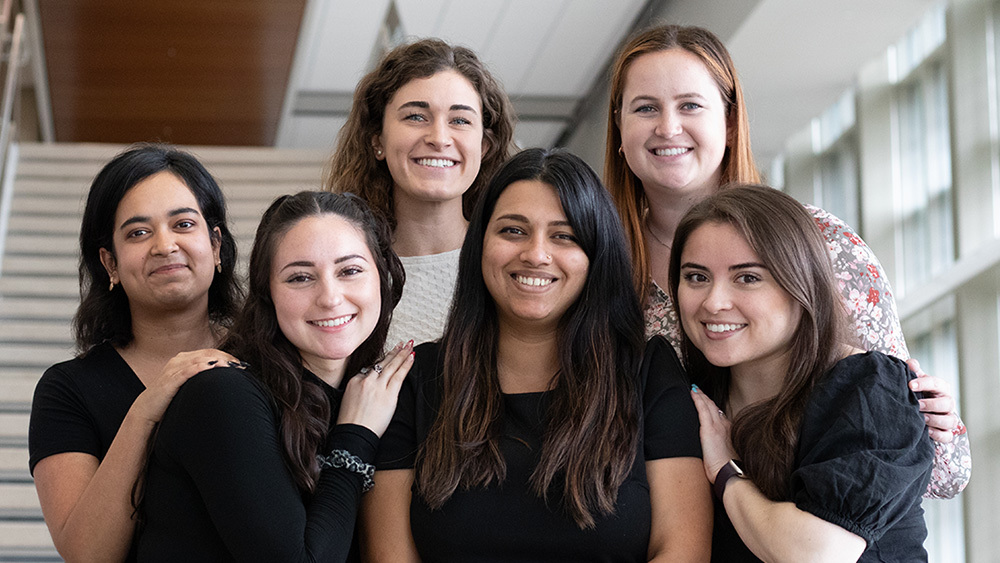
In just three short years, Dr. Shreya Raghavan has experienced great success in the Department of Biomedical Engineering at Texas A&M University. Raghavan, who is an assistant professor, has made an impact on the department with her research, teaching and service.
Raghavan’s research uses modern biomedical engineering technology to study and develop solutions to various debilitating diseases. She is the principal investigator and coordinator of the Stem Cell, Cancer, and Immune Tissue Engineering Lab, which is housed in the biomedical engineering department at Texas A&M. She has received numerous grants to fund her research, including a prestigious Method to Extend Research in Time (R37) award (MERIT) from the National Cancer Institute, part of the National Institutes of Health.
“I am passionate about making a difference with my research,” Raghavan said. “Being able to impact the health of people across the world motivates me to continue my research every day."
Raghavan’s work has been peer-reviewed and published in several journals, including Soft Matter, a publication of the Royal Society of Chemistry. She also received the 2022 Young Investigator Award from the Cells Tissues Organs journal and was highlighted in the Emerging Leaders in Biological Engineering issue of the Journal of Biological Engineering.
In addition to her research, Raghavan mentors and teaches graduate and undergraduate students in the department. She teaches a junior-level course on the fundamentals of biomaterials and is careful to create inclusive and accessible classrooms and research environments.
“For me, teaching and service are very connected,” Raghavan said. “Through both teaching and service positions, my goal has been to engage students, make them feel included and challenge their beliefs to encourage them to grow both in the classroom and beyond. I often ask students how they, as biomedical engineers, will consider equity when designing a biomedical device so it can benefit all people.”
The Texas A&M Center for Teaching Excellence (CTE) recognized Raghavan as a Montague-CTE Scholar in 2022. One tenure-track assistant professor in each college is recognized based on their success and passion for teaching undergraduate students. Raghavan was recognized for her success in promoting inclusive engagement of students through online, hybrid and in-person learning during and after the COVID-19 pandemic and for her creation of a toolkit for other instructors in the field.
“My first year of teaching was during the worst part of the pandemic,” Raghavan said. “I teach third-year engineering students in the department, so I had to do something different to keep students engaged online to combat Zoom fatigue. I created small activities and group assignments that students could do through a virtual platform. With these structured activities and reflections, we’ve seen student engagement at 90% and higher.”
The instructional toolkit Raghavan created to promote inclusive engagement of students in the classroom was published in the Biomedical Engineering Education journal, making it available for other faculty to use around the world.
“I noticed that things which I think are obvious are not always obvious to all instructors,” Raghavan said. “Things like how to improve equity in the classroom. Not everyone wants to talk or participate in front of a large group of students, but everyone still deserves the opportunity to participate and engage in the classroom setting – we just have to change the way we define engagement.”
Raghavan’s success in research, funding, teaching and service is a result of her hard work and the support of the Department of Biomedical Engineering.
“When I first came here, the department felt like a family,” Raghavan said. “Each member of the faculty and staff is invested in the success of both the individual and the collective group. I got that vibe when I first started, and three years later, I can say it’s not just a vibe; it’s reality. The environment makes it easy to be successful as a researcher and educator.”